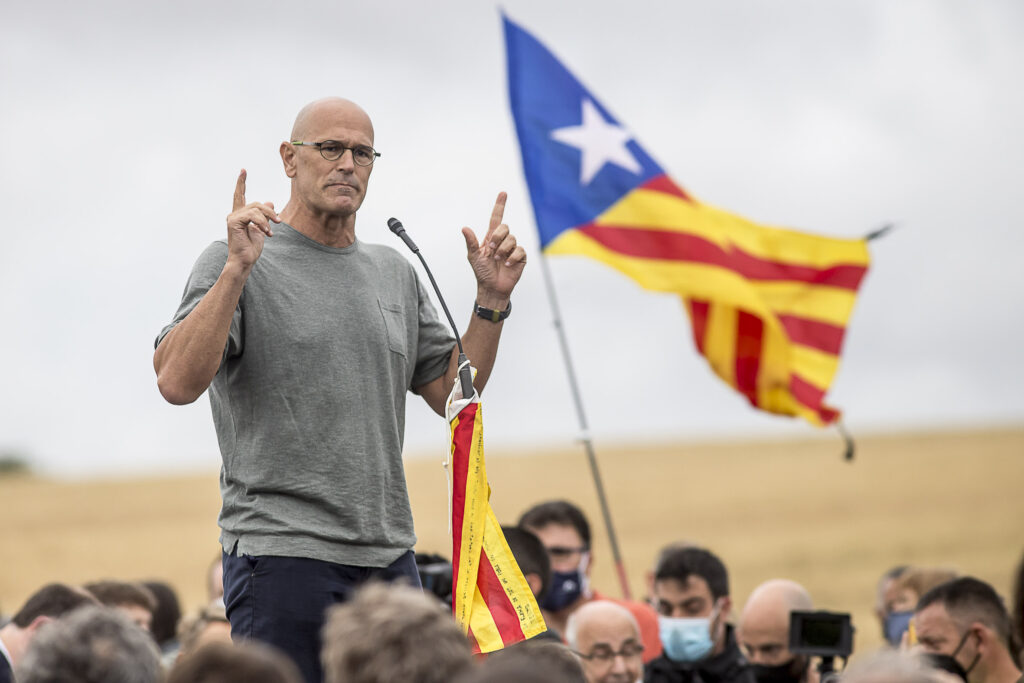02.09.2022 - 15:19
The Spanish state has 180 days to inform the United Nations Human Rights Committee of the measures it has taken to comply with the recent statement that concludes that Spain violated the political rights of Oriol Junqueras, Raül Romeva, Jordi Turull and Josep Rull. The Committee, by a large majority of its members, concluded that Spain violated Article 25 of the International Covenant on Civil and Political Rights because it used prosecution for rebellion to deprive them of political representation. That is why those affected, who have now been proven right by the UN, demand from the Spanish government an amnesty and changes into the criminal code to avoid similar cases in the future.
In a joint appearance in Barcelona, Raül Romeva and Josep Rull have also highlighted that the UN’s statement will serves as ammunition to strengthen the claims for human rights violations that they have presented to the Court of Strasbourg and the cases open to the Court of Luxembourg that affect exiles. “There should be a reaction from Spain to prevent it from happening again,” said Romeva. “There must be a political response from the Spanish government, which is amnesty. Because a political conflict has been litigated and the only way to undo it is to annul the cases that have been initiated. In the face of political conflicts, it is necessary to resort to politics. We believe that this resolution ratifies the approach we have been taking for years”, he added.
Josep Rull has explained a fact that illustrates the political persecution that the UN is now condemning: “On 1 February 2018, in a Spanish TV program, the then Minister of Justice, Rafael Catalá, advanced the terms and deadlines of our suspension, the terms in which judge Pablo Llarena had to act, re-entry to prison and firm prosecution for rebellion, and Llarena fulfilled exactly what the minister set for him”. This is why Rull thinks that the verdict also may have force in the Court of Justice of the EU, because in the case against the petitioner, exiles Puigdemont, Comín and Ponsatí want to show that the lifting of their immunity responded to a situation of fumus persecutionis, that is, of political persecution. According to him, the statement confirms that there is a systemic failure of the Spanish state when it comes to respecting the fundamental rights of pro-independence politicians.
Lawyer Nico Krisch also appeared from Geneva. Since December 2018, he has led this demand to the UN which they have now won. He appreciated that the Human Rights Committee had made such a strong statement by such a large majority of the members who examined the case (only two dissenting votes), because it is not usual. “Spain has the legal obligation to implement it because it has signed the Pact of Civil and Political Rights, and the Spanish constitution itself, in articles 10 and 96, closely links Spanish legislation with compliance to international legislation”, he said.


